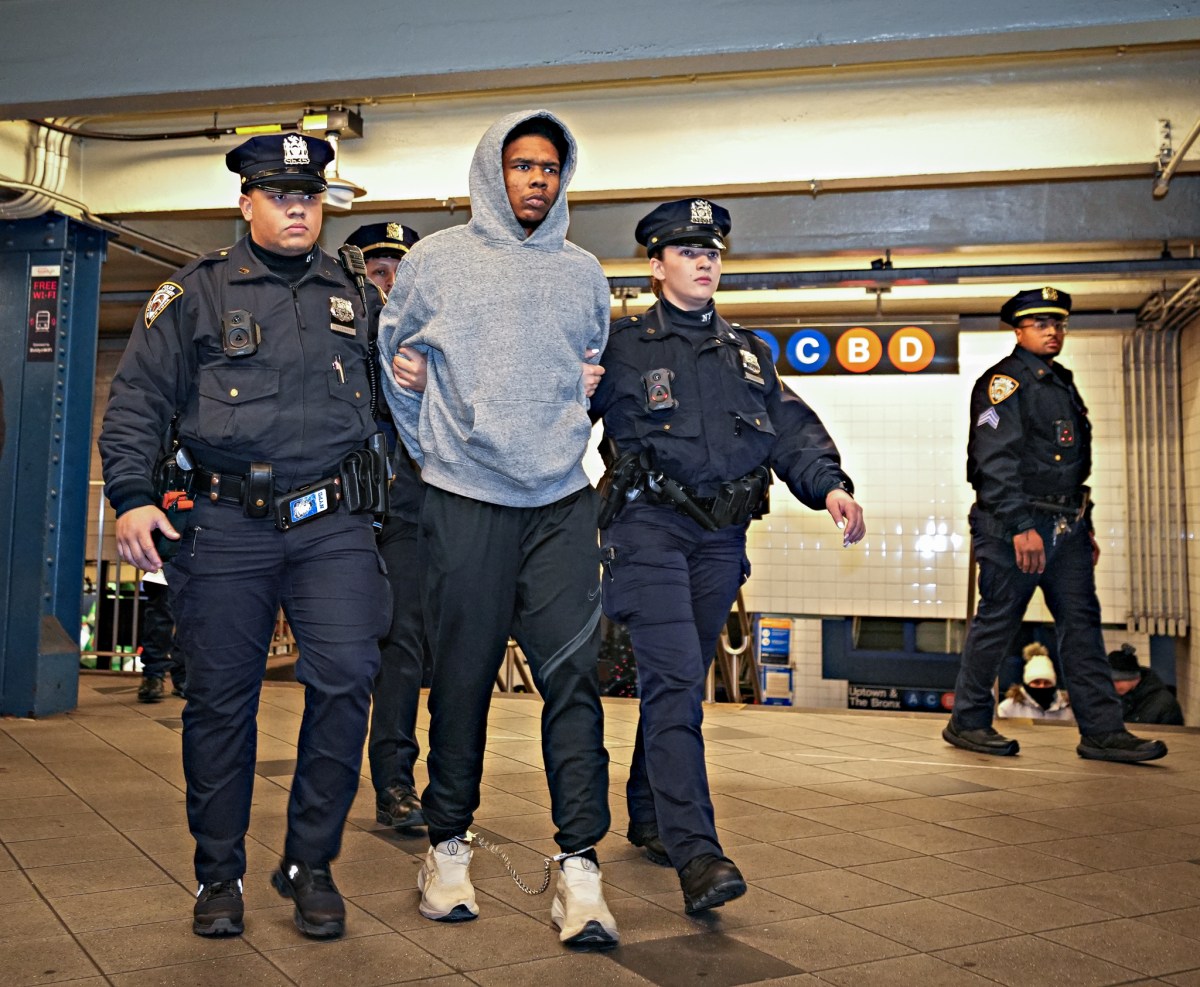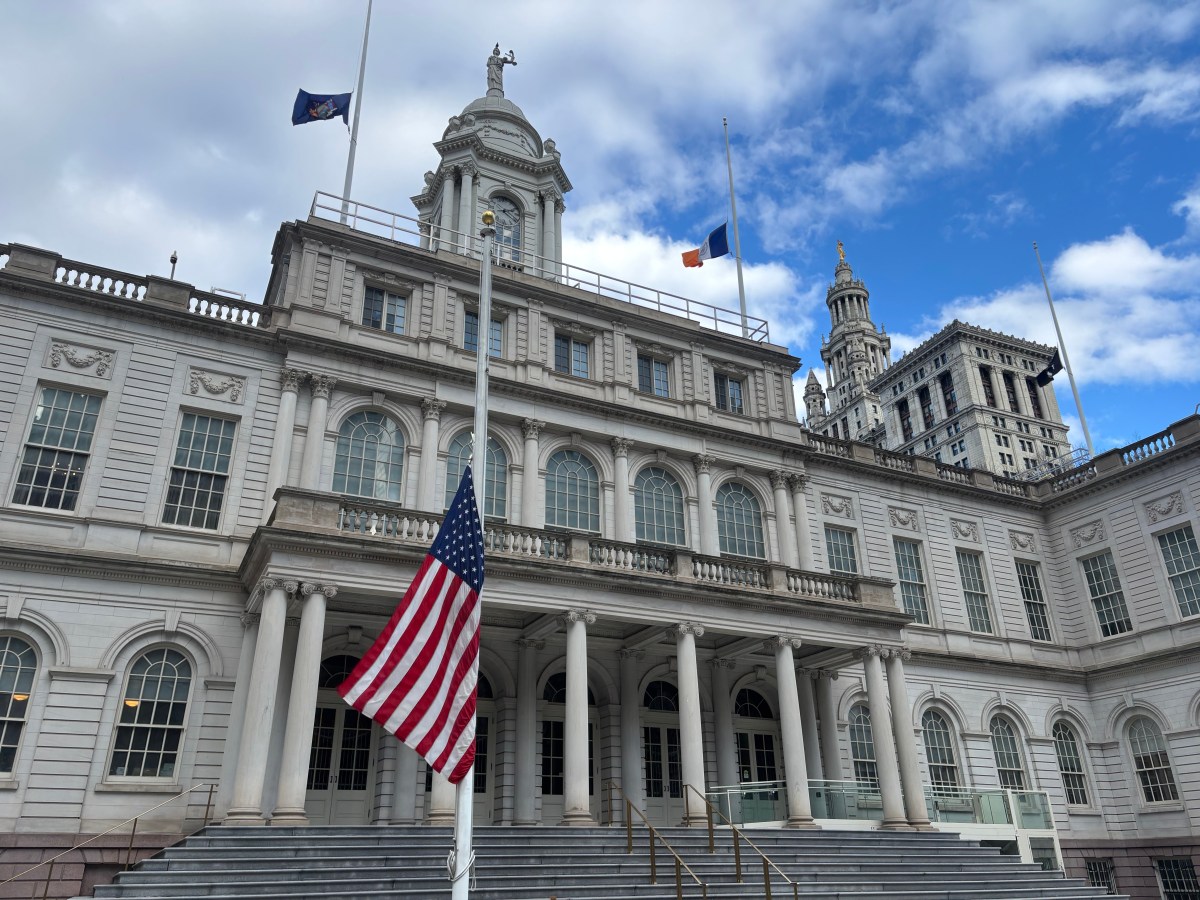New Jersey’s attorney general said Monday that his office has taken control of the police department in the state’s third-largest city, Paterson, less than a month after officers there fatally shot a well-known crisis intervention worker during a tense standoff.
Attorney General Matt Platkin said at a news conference that his office had assumed control of all police functions without delay, including the division that investigates internal police matters. His announcement didn’t mention the shooting of 31-year-old Najee Seabrooks directly, but it reflected activists’ concerns about how the department was being run.
“There is a crisis of confidence in law enforcement in this city,” he said to brief cheers and calls of “Thank you” from the audience. “Something has to change, and it will change starting now. Earlier this morning, I exercised my authority as attorney general and superseded the Paterson Police Department.”
Platkin said the takeover amounted to a “pledge” to residents and officers that the state is committed to safety in the city.
During a phone interview later Monday, Platkin said it wasn’t a single case that led to his office’s takeover of the Paterson Police Department.
“This is not a step I take lightly. It’s something I’ve been considering for a while. It’s been a series of misconduct … a complete breakdown of trust,” he said.
Isa Abbassi, a 25-year veteran of the New York Police Department currently serving as the chief of strategic initiatives there, will take charge of Paterson’s police department in May, Platkin said. He said his office “quietly conducted a nationwide search” and settled on Abbassi.
In the meantime, a New Jersey State Police officer will serve as the department’s interim head.
Pat Colligan, president of the New Jersey State Policemen’s Benevolent Association, which is the union that represents Paterson’s police officers, said in a statement that the “vast majority of those officers are doing an extraordinary job under very difficult, trying circumstances.”
Besides the takeover, Platkin said he’s implementing some other changes. They include a program that pairs a police officer with a mental health screener in an unmarked vehicle to respond to 911 calls about mental or behavioral health issues.
He also said the state will revamp its protocols statewide for dealing with people who have barricaded themselves in a room or building — as Seabrooks had done for more than five hours before he was killed. Platkin also formed a “working group” to study and make recommendations on interactions between police officers and violence intervention officers.
The standoff started about 8 a.m. on March 3 when police were called to Seabrooks’ brother’s apartment where he had been holed up in the bathroom. Seabrooks, who was a crisis intervention worker and mentor with the nonprofit Paterson Healing Collective, had called 911 at least seven times and told dispatchers that people were threatening him and he needed immediate help.
Police arrived soon after and talked to him through the door, offering to get him water and calling him “love” in one instance. But the tension increased when he told police he was armed with a “pocket rocket” gun and a knife.
Police shot Seabrooks when he emerged from the bathroom with a knife, according to the attorney general’s office.
His death shook his co-workers, who were at the scene and texting with him, said Liza Chowdhury, Seabrooks’ boss at the Paterson Healing Collective. She said Seabrooks had been texting with colleagues, asking to see them, but that police blocked the co-workers from entering the apartment.
Chowdhury said Monday that she appreciated Platkin’s decision, but she also called on him to fire the officers involved in the shooting.
In the weeks since his death, anti-violence advocates organized a vigil calling for a number of reforms, including the creation of a civilian review board. The New Jersey Institute for Social Justice has called on the Justice Department to investigate the city’s police department, and the ACLU of New Jersey said the shooting shows the need to invest in non-law enforcement responses to mental health calls.
It isn’t clear how long the takeover will last. Platkin said he’s “in for the long haul.”
Platkin didn’t specify what behavior led to the takeover, but his office has been involved in a handful of investigations in the city of more than 150,000 that’s roughly 20 miles (32 kilometers) northwest of New York.
In February, Platkin announced an aggravated assault charge against a Paterson officer who he said shot a fleeing unarmed man. In December, a grand jury declined to indict Paterson police officers involved in the death of a man they restrained two months earlier.
The U.S. Department of Justice has the power to sue police departments where there has been an established pattern of illegal behavior, corruption or unconstitutional policing practices, and issue legally binding consent decrees to require changes in those practices. It recently issued a report that will lead to a consent decree in Louisville, Kentucky, and it put the police department in New Jersey’s biggest city, Newark, under federal supervision.
State actions against local departments are less common because of local control is often stipulated in state constitutions.
Paterson’s police department is the largest to be taken over by the state in recent years, but it isn’t the only one. Among the others are the 11-officer department in Lavallette, as well as three others in Union County.
Associated Press writer Claudia Lauer contributed to this article.















